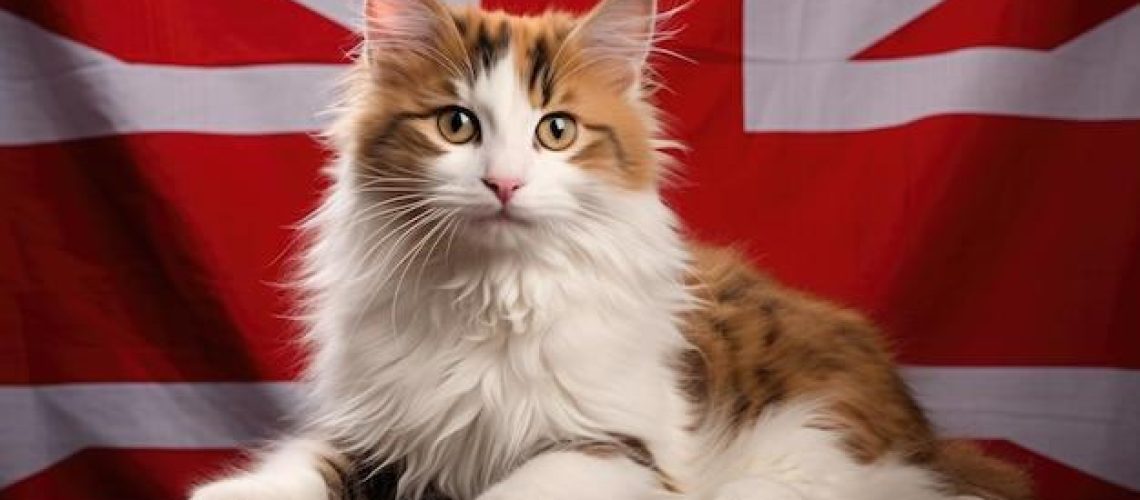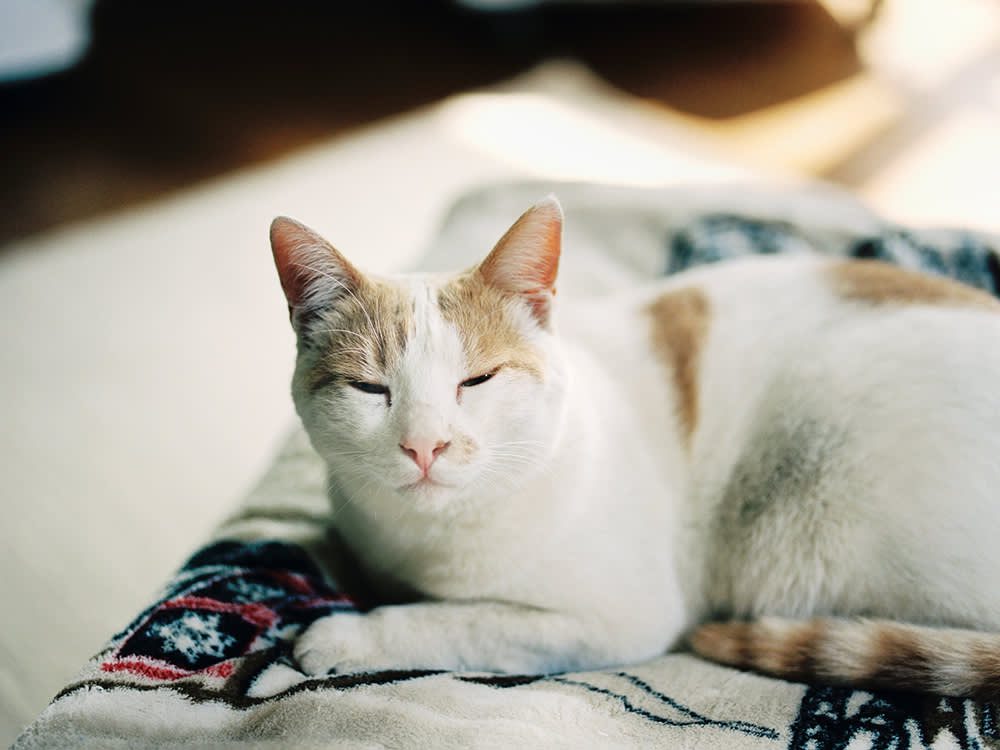Are you a cat lover? Do you want to ensure that your feline friend is living their best life? Well, buckle up because we are about to embark on a journey that will uncover the secret language of cats. By understanding the behavior red flags and signs that indicate your cat might be unhappy, you can become their ultimate guardian and provide them with the love and care they deserve. Not only will this knowledge deepen the bond between you and your furry companion, but it will also give you peace of mind knowing that you are meeting their emotional needs. So, let's dive into the fascinating world of feline communication and decode those subtle cues that our purring pals use to express themselves. Get ready to become a cat whisperer!
Key Takeaways:
- Changes in appetite or weight can be a red flag that your cat is unhappy.
- Increased aggression or biting may indicate that your cat is feeling stressed or unhappy.
- Avoidance of social interaction and hiding could be signs of unhappiness in cats.
- Excessive grooming or hair loss might suggest that your cat is experiencing distress.
- Changes in litter box habits, such as urinating outside the box, can be a sign of unhappiness in cats.
Signs Your Cat Might Be Unhappy
Changes in Behavior
If you notice that your usually friendly and social cat has become withdrawn or distant, it could be a sign of unhappiness. Cats are generally independent creatures, but they still crave human interaction and affection. If your cat starts avoiding you or hiding away more often, it may be a sign that something is bothering them.
Another behavior change to watch out for is increased aggression. If your cat starts hissing, scratching, or biting more frequently, it could indicate that they are feeling stressed or unhappy. This aggression may be directed towards humans or other pets in the household.
Physical Symptoms
In addition to changes in behavior, there are also physical signs that can indicate your cat is unhappy. One common physical symptom is excessive grooming. While cats groom themselves regularly, if you notice your cat constantly licking or biting their fur to the point of creating bald patches or sores, it could be a sign of stress or anxiety.
Weight loss or gain can also occur when a cat is unhappy. Just like humans, cats can experience changes in appetite due to emotional distress. If you notice a significant change in your cat's weight without any obvious medical reason, it's worth considering whether their emotional well-being is contributing to this change.
Recognizing Sadness or Stress in Your Cat
Changes in Sleeping Patterns
Cats are known for their love of sleep, but if you start noticing significant changes in your cat's sleeping patterns, it could be a sign of unhappiness. While some cats may sleep more when they're stressed as a way to cope with their emotions, others may have trouble sleeping and display restlessness.
If your usually active and playful cat suddenly becomes lethargic and uninterested in their favorite toys or activities, it could be a sign that they are feeling sad or stressed. Keep an eye out for any changes in their energy levels and enthusiasm for playtime.
Changes in Vocalization
Cats communicate through various vocalizations, such as meowing, purring, and hissing. If you notice a significant increase or decrease in your cat's vocalizations, it could be a sign of unhappiness. Some cats may become more vocal when they're feeling lonely or anxious, while others may become unusually quiet and withdrawn.
Pay attention to the quality of your cat's meows as well. If they sound more distressed or unusual compared to their usual communication style, it could indicate that something is bothering them.
The Importance of Understanding Your Cat's Behavior
Understanding your cat's behavior is crucial for ensuring their happiness and well-being. Cats have unique personalities and ways of expressing themselves, so it's important to pay attention to their individual needs and preferences.
By observing your cat's behavior closely, you can better understand what makes them happy or stressed. This knowledge allows you to create an environment that promotes their emotional health and helps you identify any potential issues early on.
Remember that every cat is different, so what works for one may not work for another. It's essential to be patient and adaptable in order to meet your cat's specific needs.
Can Changes in Eating Habits Indicate an Unhappy Cat?
Yes, changes in eating habits can be indicative of an unhappy cat. Just like humans, cats can lose their appetite when they're feeling sad or stressed. If your cat suddenly starts refusing food or shows a significant decrease in their food intake over a prolonged period, it's worth investigating the underlying cause.
On the other hand, some cats may also overeat or develop an unhealthy relationship with food as a result of emotional distress. They may use food as a coping mechanism or seek comfort in excessive eating. Keep an eye out for any sudden changes in your cat's eating habits, as they can provide valuable insights into their emotional state.
Common Behavioral Changes in Unhappy Cats
Unhappiness in cats can manifest in various behavioral changes. Here are some common signs to look out for:
- Increased aggression towards humans or other pets
- Withdrawal and hiding away more often
- Lack of interest in favorite toys or activities
- Lethargy and decreased energy levels
- Excessive grooming leading to bald patches or sores
- Peeing or pooping outside the litter box
- Vocalizing more frequently or becoming unusually quiet
If you notice any of these behavioral changes in your cat, it's important to address the underlying causes and take steps to improve their well-being.
Tips to Improve Your Cat's Happiness and Well-being
To ensure your cat's happiness and well-being, consider implementing the following tips:
- Create a safe and stimulating environment with plenty of hiding spots, scratching posts, and interactive toys.
- Spend quality time with your cat through play sessions, grooming, or simply providing them with companionship.
- Establish a consistent routine for feeding, playtime, and sleep to provide stability and reduce stress.
- Provide a balanced and nutritious diet to support your cat's physical and emotional health.
- Ensure your cat has access to fresh water at all times.
- Offer a clean litter box and ensure it is placed in a quiet and easily accessible area.
Remember, each cat is unique, so it may take some trial and error to find what works best for your feline companion. Be patient and observant, and always consult with a veterinarian if you have concerns about your cat's well-being.
Actions to Avoid to Keep Your Cat Happy
To keep your cat happy, avoid the following actions:
- Neglecting or ignoring your cat's need for attention and affection.
- Punishing or scolding your cat for exhibiting natural behaviors like scratching or meowing.
- Overfeeding or underfeeding your cat, leading to weight issues or nutritional deficiencies.
- Leaving toxic substances within reach of your cat, such as household cleaners or plants that are poisonous to cats.
- Sudden changes in the environment without providing gradual transitions, which can cause stress and anxiety.
By avoiding these actions, you can create a positive and nurturing environment for your cat, promoting their happiness and overall well-being.
In conclusion, it's important to pay attention to your cat's behavior as they can show signs of unhappiness. By understanding these red flags and taking appropriate action, you can ensure a happy and healthy life for your feline friend.
How can you tell if a cat is unhappy?
Indications of a cat experiencing depression may include changes in their meowing patterns, such as meowing more or less frequently and producing low-pitched, mournful sounds. They may also show a decrease in energy or a decline in their usual activity level. Cats may withdraw from human interaction and avoid contact with other pets in the family. Additionally, they may spend more time hiding or sleeping than usual. These signs can be observed in depressed cats.
What are red flags in cat behavior?
If your cat starts exhibiting signs of distress, such as excessive vocalization, hiding, or unusual behavior, it is important to take notice as it may indicate a serious issue. Cats are usually known for their stoic nature, so any sudden change in behavior should be a cause for concern.
What behaviors are unacceptable in a cat?
Although training is commonly associated with dogs, it is just as important to teach a new cat good behaviors and discourage unwanted ones, such as scratching, biting, climbing, aggression, territorial behaviors, and urine marking.
How do I know if my cat is mentally unstable?
Be attentive to significant shifts in behavior, such as sudden aggression or a decrease in social interaction. Other indications to watch out for are excessive vocalization, restlessness, pacing, or compulsive behaviors like excessive grooming or chasing their tail.
What are 4 signs your cat is suffering?
Signs that a cat is in pain include a decrease in interest in activities such as playing, socializing, and exploring outside. They may become withdrawn and hide away. They may also appear lame and show increased sensitivity to touch in certain parts of their body. Additionally, there may be a reduction in their movement and overall activity level.
How do I know if my cat feels unloved?
When a cat's ears are pinned back, their fur is raised, or their tail is tucked instead of being held high, it usually indicates that they are not feeling well. While it is normal for cats to become tense during play, a content and healthy cat will relax afterwards.

















